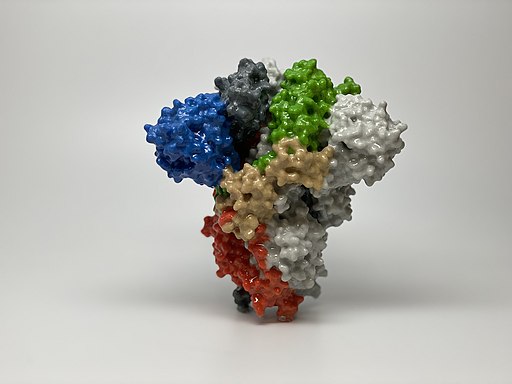Despite the recent decline in COVID-19 cases, researchers and public health officials struggle to treat and prevent new cases of the disease. A 2022 article in the Washington post outlined the recent efforts by researchers to treat and prevent COVID-19, particularly examining monoclonal antibody treatment, a treatment that utilizes human-made antibodies to aid in the Body’s natural response.
However, according to researchers, new mutations are quickly arising which undermine the effectiveness of these treatments, making it difficult for the medical world to keep up with the virus, so biologists are turning to more novel methods. One Quebec-based company, Sherbrooke, thinks they’ve found the solution, “We saw a sharp decline in viral loads,” says the company’s chief medical officer Bruno Maranda.
Traditional monoclonal antibody treatment has had trouble inhibiting the binding between the spike protein of the virus SARS-CoV-2 and human cells because the binding location of the spike protein is mutating quicker than researchers can adjust antibody treatment. According to Andrés Finzi, associate professor at the University of Montréal, “there is a huge immune pressure on the virus,” indicating that it will likely continue to mutate in this way.
However, scientists have noticed that certain areas of spike protein have remained rigid as the virus mutates; one such area is the stem helix. Because of its lack of mutation, scientists believe that this area is essential to SARS-CoV-2 and if disrupted can limit its ability to mutate and cause harm to our bodies.
Although the new drug from Sherbrooke uses 2 antibodies that attack the spike protein in a more conventional way, the new third antibody attacking the more rigid areas of the protein has proven effective in all trials that have been undertaken.
Another recent paper has also attempted to amend antibody treatment to target more stable sections of the spike protein: the fusion peptide. According to the chief of the Antibody Biology unit of the National Institute of Allergy and Infectious Diseases, this structure “acts like a grappling hook and inserts into the human cell membrane, pulling the membrane closer to the virus membrane.” Researchers hope to use these rigid structures to help develop more reliable treatments and preventions for COVID-19.
This system of antibodies protecting our bodies from illness is similar to what we are currently learning in Biology class. In class, we learned that in the body’s humoral response to pathogens, B-plasma cells secrete antibodies that bind to pathogens, thereby neutralizing them, allowing them to be quickly engulfed by macrophages and destroyed. Monoclonal antibody treatment leverages this function of antibodies, creating artificial antibodies to facilitate this interaction more strongly.
While these new developments in COVID-19 treatment are exciting, Finzi warned that “we shouldn’t underestimate the capacity of a coronavirus to mutate.” Other scientists, including Harvard professor of pediatrics Bing Chen, believe that antibody treatment research should not take the place of other disease-fighting tactics; according to Chen “we need much more effective vaccines, for sure.” But one thing remains true, and that is that SARS-CoV-2 continues to mutate, and will continue to be a serious problem if we fail or adequately treat and prevent it, and while the number of cases is decreasing, it still remains strikingly high for us to write off the disease as harmless.



Leave a Reply